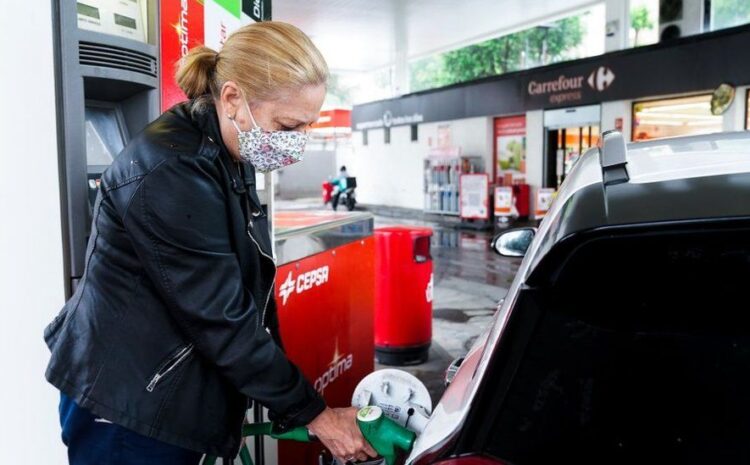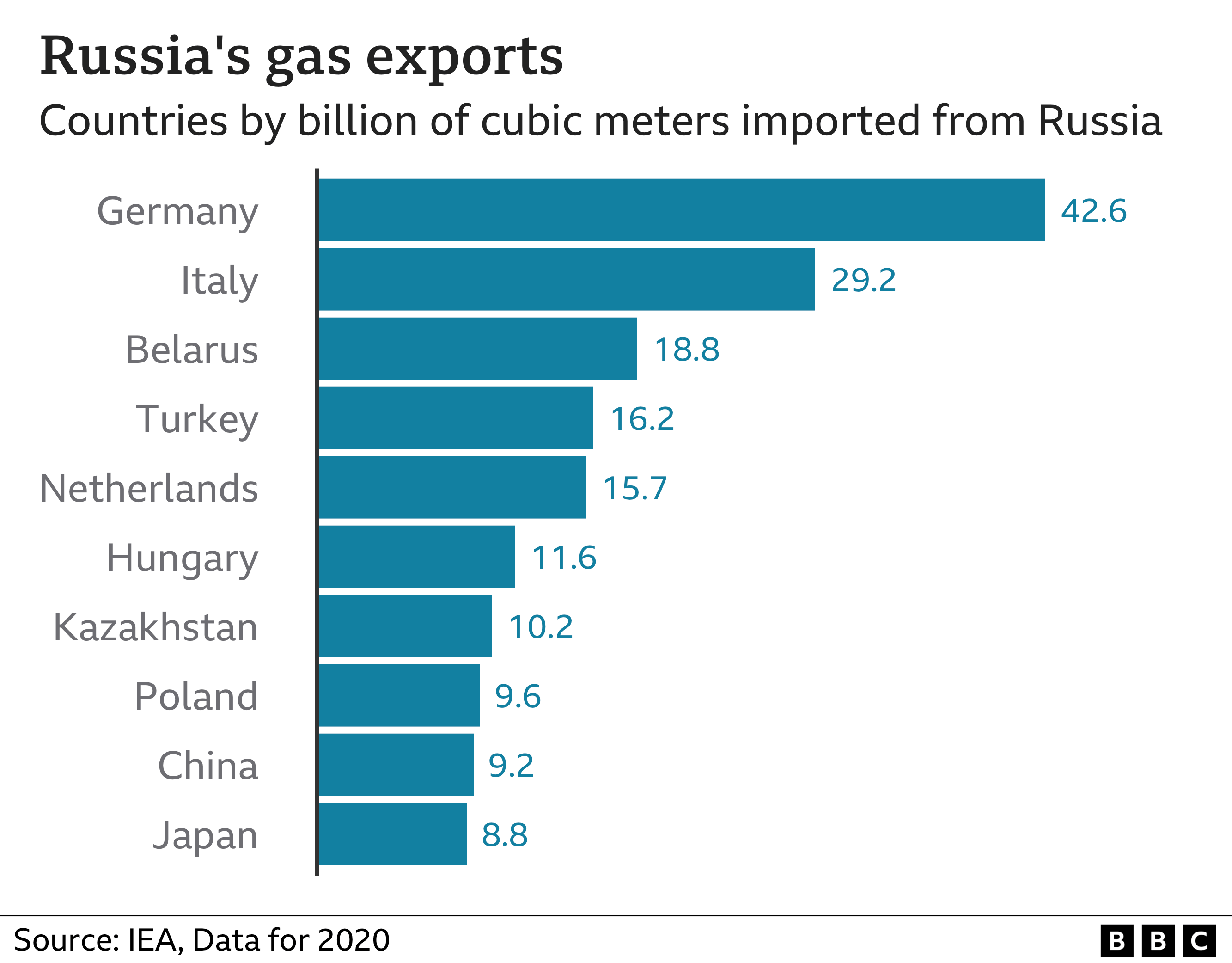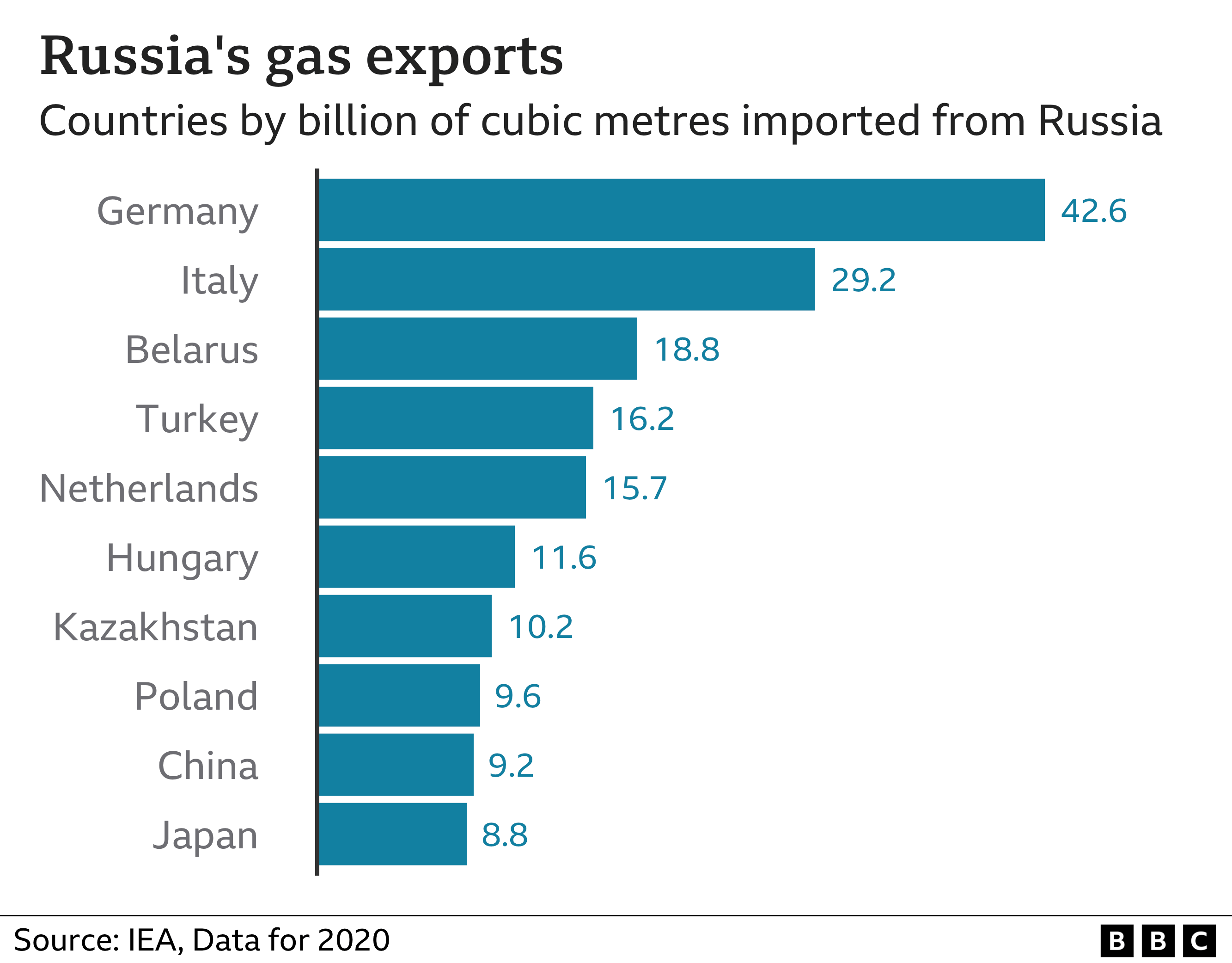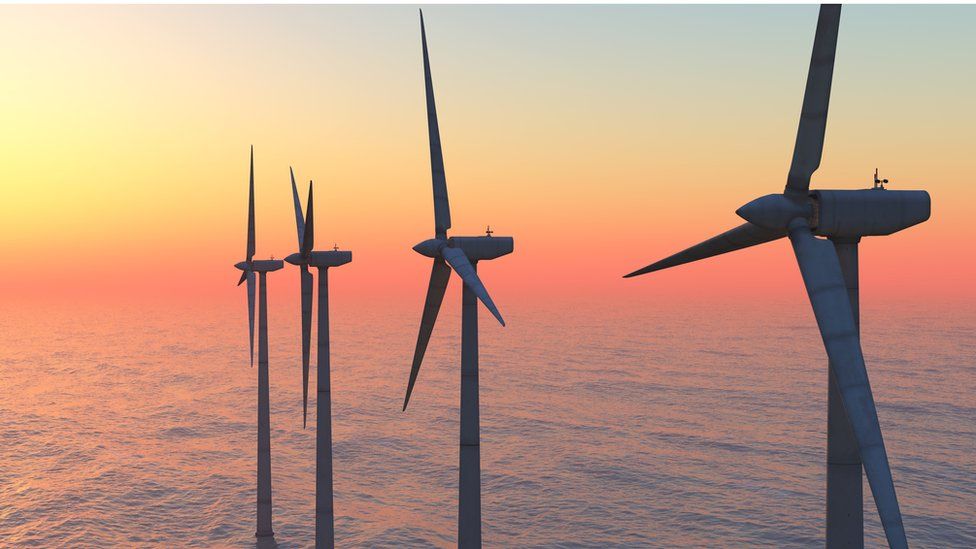
IMAGE SOURCE, GETTY IMAGES Image caption, Fuel prices have soared since Russia’s invasion of Ukraine
By Jake Horton, Daniele Palumbo & Tim Bowler
BBC Reality Check
After the invasion of Ukraine, the US, EU, and UK announced restrictions on Russian imports.
What sanctions are there on Russian oil and gas?
The US has declared a complete ban on Russian oil, gas and coal imports.
The UK is to phase out Russian oil by the end of the year and the EU is reducing gas imports by two-thirds.
Russia has warned banning its oil would lead to “catastrophic consequences for the global market”.
Oil and gas prices have both risen since the invasion of Ukraine.
How much oil does Russia export?
Russia is the world’s third biggest producer, behind the US and Saudi Arabia.
Of about five million barrels of crude oil it exports each day, more than half went to Europe, before sanctions were announced.
Russian imports accounted for 8% of total UK oil demand and 3% of US demand.

In early April, Russian oil production had dropped by 700,000 barrels a day, according to the International Energy Agency (IEA).
The IEA says the decline could reach 1.5 million barrels a day by the end of the April, and about three million from May.
This follows European buyers seeking alternative suppliers, and the US banning Russian oil imports altogether in early March.
What are the alternatives to Russian oil?
Energy policy research analyst Ben McWilliams says it should be easier to find alternative suppliers for oil than for gas, because while some comes from Russia, “there’s also a lot of shipments from elsewhere”.
Some IEA members have released the equivalent of 120 million barrels from oil stocks – the largest stock release in its history.
US President Joe Biden ordered a major release of oil from America’s reserves in an effort to bring down high fuel costs.
The US also wants Saudi Arabia to increase its oil production and is looking at relaxing sanctions on Venezuela’s oil.
What would happen if Russian gas stopped flowing into Europe?
Supplies from Russia account for about 40% of the EU’s natural gas imports. If this dried up, Italy and Germany would be especially vulnerable.

Europe could turn to existing gas exporters such Qatar, Algeria or Nigeria, but there are practical obstacles to quickly expanding production.
Russia only provides about 5% of the UK’s gas supplies, and the US doesn’t import any Russian gas.
Gas prices in Europe, the UK (and to a lesser extent, the US) jumped significantly after the invasion, due to worries about supply shortages, although they then fell back.
What about alternatives gas supplies?
The US has agreed to ship an additional 15 billion cubic metres of liquified natural gas (LNG) to Europe by the end of this year.
The aim is to supply 50 billion cubic metres per year of additional gas until at least 2030.
But Mr McWilliams says: “It’s harder to substitute gas because we have these big pipes that are taking Russian gas to Europe.”
Europe could also ramp up the use of other energy sources, but doing so is not quick or easy.
 IMAGE SOURCE, GETTY IMAGES
IMAGE SOURCE, GETTY IMAGES“Renewables take time to roll out so in the short term this is not a solution,” says research analyst Simone Tagliapietra.
“So for next winter – what can make a difference is fuel switching such as opening up coal-fired power plants, as Italy and Germany have plans to do in case of an emergency.”
The EU has proposed a plan to make Europe independent from Russian fossil fuels before 2030 – including measures to diversify gas supplies and replace gas in heating and power generation.
What will happen to my heating and fuel bills?
Consumers will face rising energy and fuel bills as a result of this war.
Heating prices – which are already high – are likely increase even more if the flow of Russian gas into Europe is restricted.
In the UK, household energy bills have been kept in check by an energy price cap.
But bills rose £700 to about £2,000 in April when the cap was increased. They are expected to reach about £3,000 when the cap is increased again this autumn.
UK petrol and diesel prices have also soared, and the government has now announced a cut in fuel duty as motorists struggle with record prices.
 IMAGE SOURCE, GETTY IMAGES
IMAGE SOURCE, GETTY IMAGES“I think if we’re in a world where Russian oil and gas stop flowing to Europe then we’re going to need rationing-style measures,” says Mr McWilliams.
“Part of the conversation now is, can we tell households to turn their thermostats down one degree, which can save a significant chunk of gas.”
